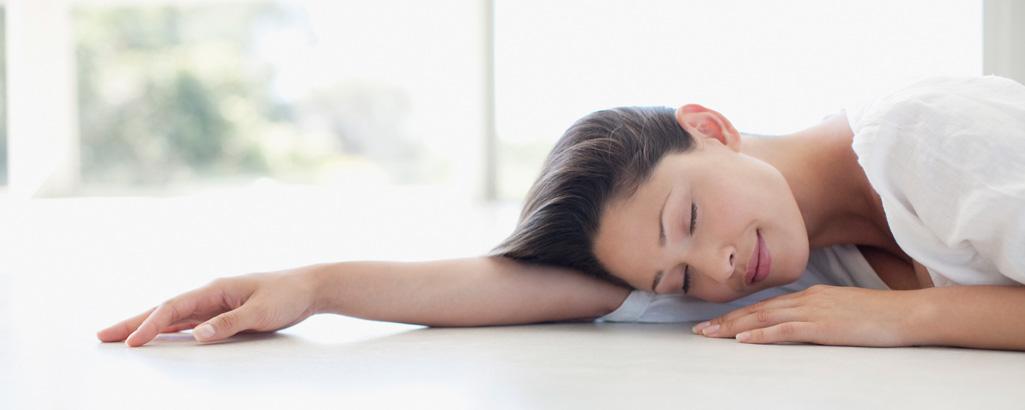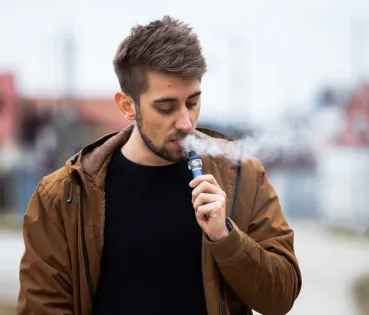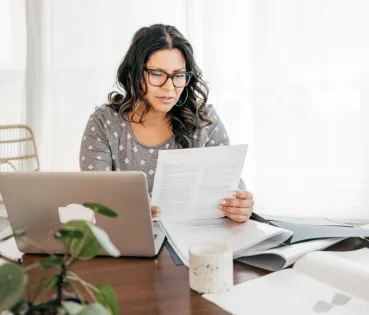
Sleep disorders: keys for getting more, better sleep
Getting enough rest is vital for our organism and to do this, routine is a determining factor. The change in habits due to the lockdown has affected many people’s sleep patterns. How do we get the quality of our sleep back? Doctor Paula Giménez points out the factors that mark out the way we sleep.
How has the lockdown affected our sleep? Which factors have decreased it?
The lockdown has been associated with a very important change in our habits and routines. We have moved into a situation in which all our activities have been restricted. Our biological clock’s synchronisers have been seriously reduced. There are several factors that regulate our biological clock and our circadian rhythm and therefore, our sleep: exposure to light, physical exercise, regular bedtimes and time for getting up, along with social contact. All these factors have been affected during the lockdown, affecting our hours of sleep and its quality. Other key factors are the stress, anxiety and fear about the healthcare and economic situations derived from the pandemic.
Are we sleeping well?
Spaniards sleep little. Our lifestyle involves going to bed late and our work obligations impose our getting up time, therefore we are often short of sleep. Additionally, the increasingly frequent use of electronic devices before going to sleep delays the start of the sleep process, as the blue-white light that they give off inhibits the release of melatonin, delaying its start.
Is there a recipe for beating sleep problems?
Cognitive behavioural therapy is the most effective. It is based on sleep hygiene steps and in the re-education of certain cognitions or mistakes that the patient has regarding sleep, such as the longer they spend in bed, the greater the chance of getting to sleep…
Is it a good idea to take sleep medication or supplements?
Sleeping tablets are supplements that we can use linked to sleep hygiene steps and routines, but always as a last resort and with a medical prescription. Compounds of natural herbs and even melatonin are very good alternatives.
Is an afternoon nap a good idea?
Long naps have two disadvantages: on the one hand, after the first twenty minutes of sleep we enter phase III of the NREM sleep or deep sleep. When we wake up in this phase we do so feeling bloated and with a headache… On the other hand, long naps can make it difficult to get to sleep at night. But it is true that a short nap, lasting 15-20 minutes is recommendable.
What health problems are caused by a lack of sleep?
The feeling of lack of rest, sleepiness during the day with the subsequent risk of traffic and work accidents, difficulty to concentrate and carry out daily obligations, loss of memory, headaches…Additionally, more and more studies associate the loss of sleep and its disorders with obesity, diabetes mellitus and heart disease.
Will it be easy for healthcare personnel to recover ‘normality’ in their rest?
Healthcare personal have suffered considerably during the pandemic, with long working days, anxiety regarding possible infection, along with that of their family members and in many cases without being able to see their loved ones. They have experienced unprecedented professional situations. Many have suffered from distress, anxiety and insomnia. Insomnia tends to improve or disappear when the stressful episode that generated it disappears.
How long should we sleep every day?
Sleep requirements vary with age, in terms of a person’s physical and neuronal development and their activity, both physical and intellectual. The sleep requirements are not going to be the same for a newborn baby that is in constant neurological development, as for an elderly person. Likewise, a professional footballer needs to sleep more than a sedentary person. As a guideline, a newborn baby sleeps on average from 14 to 17 hours a day, with an ultradian rhythm, while a school student needs between 9 and 10 hours of night-time sleep, a teenager 9, an adult 8 and a half and an elderly person between 7 and 8 hours.
What factors determine our sleep and its quality? Do we commit many mistakes that stop us from going to sleep?
Our sleep and night-time rest are highly influenced by day we have had. Normally, after a very tough day, full of stress, it is more difficult to get to sleep. Therefore, it is important to get ready for sleep, devoting some time to relaxing physically and mentally beforehand, in order to be able to get to sleep without any problems. We must take into account that we don’t have an “OFF” button to press when we want to sleep. We must get ready for sleep…. Furthermore, as I mentioned before, our biological clock, regulating our sleep-waking cycle, needs some synchronisers to work property: light, physical exercise, stable times for sleep and meals and social contact. The recommendation is that we should be exposed to light, preferably natural light, during the first hours of the day, performing regular physical exercise, preferably moderate intensity aerobic exercise for around 30 minutes a day, avoiding doing this at least three hours before going to sleep, as it increases our body temperature (the body temperature drops during sleep) and it is a stimulating activity. In the same way, light should be avoided in the hours prior to going to sleep, particularly blue-white light (electronic devices). A very common habit is to take our problems and worries to bed with us: they keep us awake. A bed is for sleeping, not for solving problems.
Is there still a great deal to explore and discover in the field of sleep?
Sleep Medicine has made great progress over the past 15 years, but currently, it is a speciality that is still under development. Not long ago, it was thought that sleep was a passive process, just a disconnection of the brain. Today, we know that sleep is an active process, with great neuronal activity, essential for life and for a correct, healthy time awake, which, amongst others, has functions for regulating the memory, the body temperature and the immune system, as well as repairing functions on the cardiovascular and musculoskeletal systems.
Although we have moved forward a great deal in the treatment of different sleep disorders such as Narcolepsy and Restless Legs Syndrome and new drugs have been developed for insomnia that generate less dependence and tolerance, lines of research continue in treatments for the different sleep disorders. There is increasing evidence about the repercussions of the lack of sleep or its bad quality on the cardiovascular, metabolic or immune systems. Currently, many scientific studies are centring on the study of the different diseases linked to sleep disorders.
Advice for beating insomnia
In general, we can give the following recommendations:
- Establish some regular times for getting up and going to bed.
- Do some physical exercise every day, preferably in the mornings and in the open air.
- Go out into the daylight during the first hours of the day.
- Do not have an afternoon nap, or if you do, don’t do it too late, or for longer of 15-20 minutes.
- Avoid intense physical exercise at least 3 hours before going to bed.
- Do not have a late supper and try to ensure that it is neither too much nor too little. Eating foods with large amounts of tryptophan (a precursor of melatonin) can help encourage sleep.
- Avoid using electronic devices after dinner and replace this with relaxed activities.
- Establish a relaxing ritual before going to bed, avoiding physical or mentally stimulating activities. Monotonous, relaxed reading is a good option. A calm routine contributes to the appearance of sleep.
- Only turn the light out when you are sleepy and avoid taking your problems to bed with you. Your bed should be exclusively for sleeping.
Who he is?
Dr. Paula Giménez Rodríguez, ASISA delegate in Alicante and director of the Multidiscipline Sleep Unit at the HLA Vistahermosa clinic.




